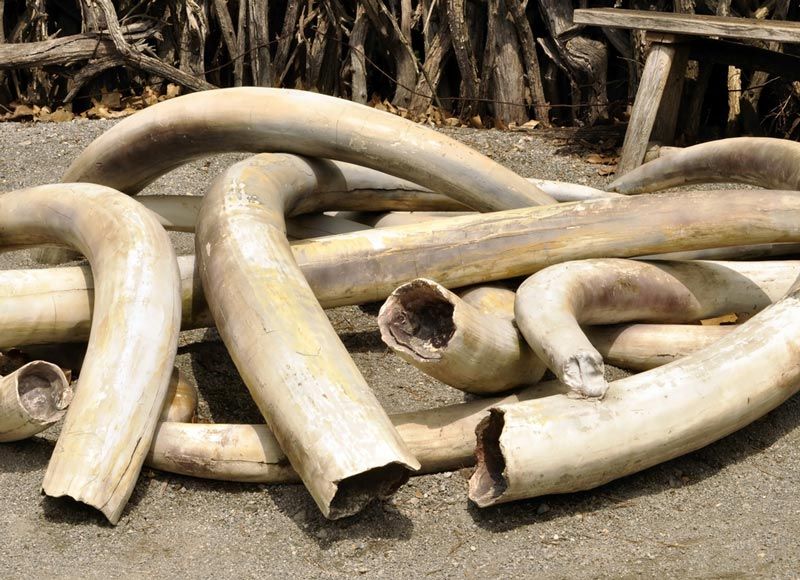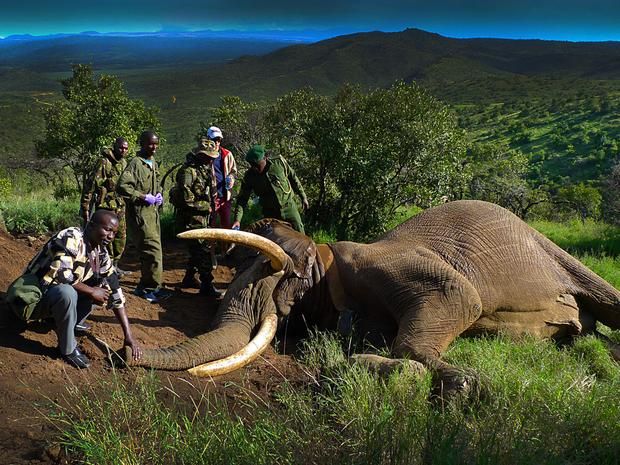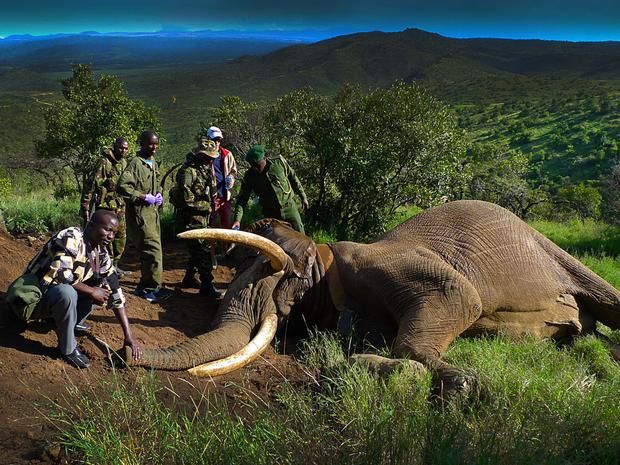
NEWS
11-05-2020 by redazione

The Coronavirus emergency, partial lockdowns in counties and night curfews in Kenya do not curb the criminal activity of poachers who hunt elephants and illegally trade ivory.
Due to less control in the parks and reserves, which are currently closed to tourists, as well as all the lodges and camps, the smugglers are in action and find their "merchandise" even near populated areas, which makes their dirty work easier.
Last Saturday a collaboration between police and rangers from Kenya Wildlife Service led to the arrest of three people in Lakipia County.
The three were trying to sell nine pieces of elephant tusks for a total of 50 kilos.
David Mwara, Peter Nderitu and Tarcisio Mukere were tracked and followed by KWS who alerted Laikipia police detectives. They found the potential buyers and got on a matatu, travelling thanks to the complicity of the driver.
At the end of the trip, the meeting took place for the sale of ivory, for an estimated value of about 30 thousand euros.
But in the shoes of the buyers were the middle-class policemen who arrested the three and the driver of the matatu, as confirmed by the Commander of the Police of Laikipia Central, Isaac Ogembo.
"We have the three, including Matatu's driver, in our custody," said Ogembo. "They were arrested by our officers and those of KWS while trying to sell the elephant tusks with an estimated value of Kes. 3.3 million. They will be judged on Monday by direct action".
Collaboration between departments and also the local population was crucial.
"We have worked closely with our colleagues in the Kenya Wildlife Service - reported Ogendo - We also thank the citizens who have provided us with crucial information that led to the arrest of the culprits".
The hunt for poachers in action during this period has intensified and the request to the residents of Laikipia is to cooperate and remain in close contact with KWS and law enforcement, although it does not seem that the tusks in possession of the three criminals came from elephants killed recently.
"From the state of the pieces of tusks, which are not particularly new - explained the KWS officer - the illegal goods should come from poaching activities not very recent".
The attention remains very high everywhere, from Meru Park to the Lewa reserve, where last December, two specimens of rhinoceros were killed. Poaching activity was also found near the Tsavo Ovest last week, the KWS continues to track and monitor elephants.
Last March, the carcass of a very rare white giraffe, whose tracks had been lost for a few weeks, was found in a reserve in Garissa County. The meat had been removed for trade. Cases such as these could increase due to the economic crisis caused by the pandemic and the resulting restrictions leading to situations of extreme poverty and malnutrition.

Poaching episodes in the national reserves of East and West Tsavo in the first six months of the year decreased by 96% thanks to...
ENVIRONMENT
by Freddie del Curatolo

Nairobi National Park, the only wildlife reserve within a global metropolis, celebrated 75 years...
WILDLIFE
by redazione

Fighting against poaching and the international ivory ban are yielding their fruits: in three years the number of elephants in Kenya has increased almost 15 percent (14.7 for precision).
The announcement was made by the Kenya Wildlife Service, thanks to the...
WILDLIFE
by redazione

The figures presented by ICEA, Lion General Insurance Company at the Kenya Wildlife Service are clear, this year has reached the 100 mark lions killed in the bush of Kenya.
NEWS
by redazione

For the first time the online platform Netflix will broadcast a film produced and...
RESERVES
by Leni Frau

The Kibwezi Forest Reserve, established in 1936, is one of Kenya's last rainforests...
WILDLIFE
by Leni Frau

The year of the rhino. The year 2020 for conservation in Kenya will be remembered as the first...
MORE ELEPHANTS KILLED
by Freddie del Curatolo

It seems absurd, as well as anachronistic and also economically unprofitable these days, that...
NEWS
by Leni Frau

Kenya has launched its first national wildlife census.
It is a process that will take about...